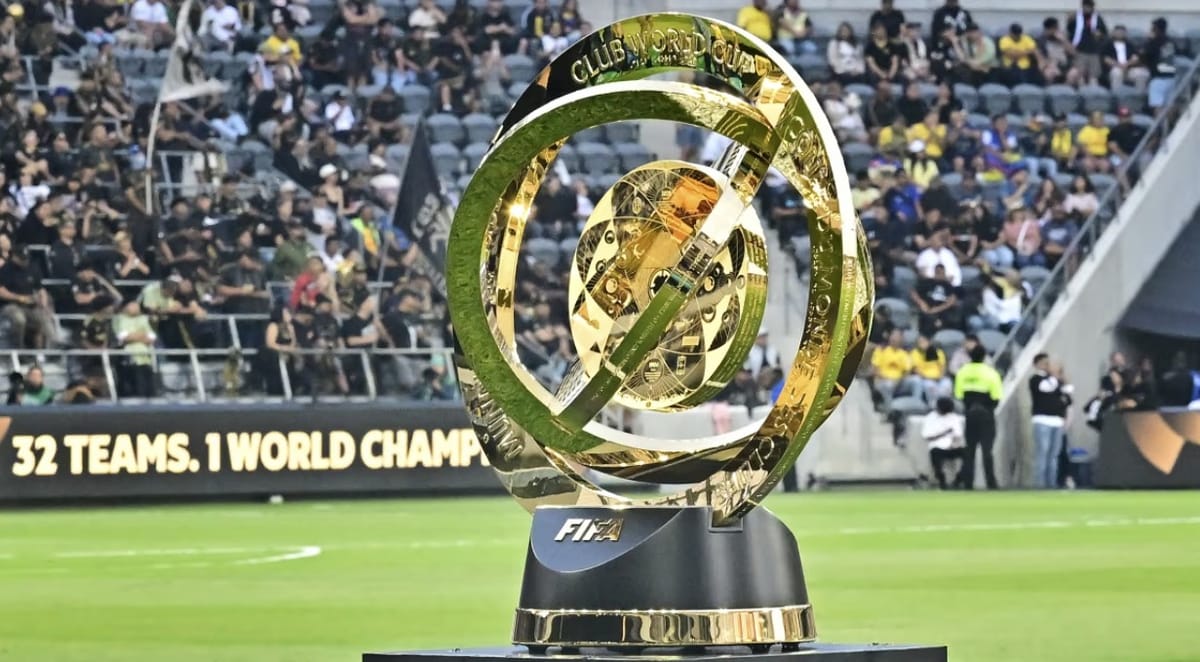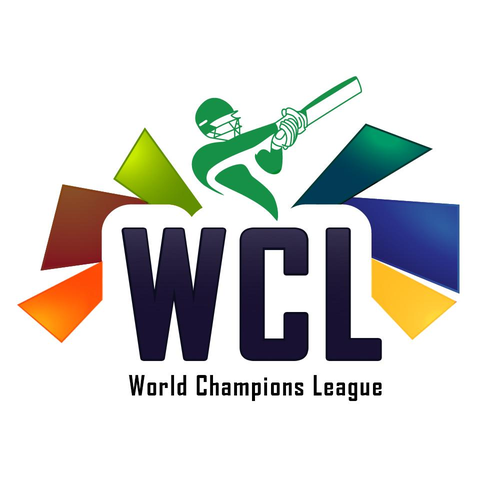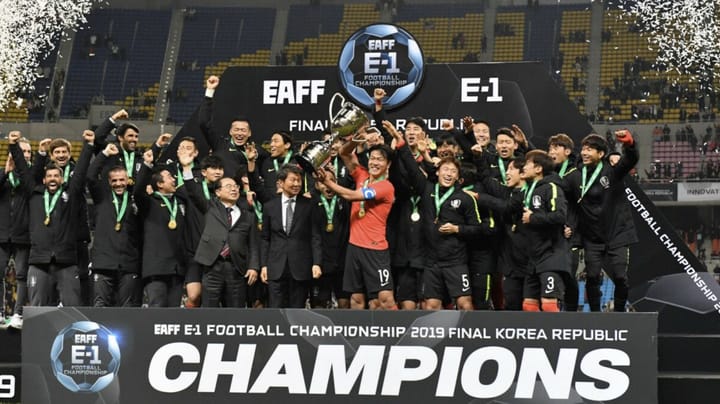FIFA Club World Cup 2025: A New Era Dawns for Global Club Football
Chelsea claims the first 32-team FIFA Club World Cup 2025! This historic football event redefined global club competition, sparking debates on player welfare and FIFA's future. What's next for the beautiful game?

The final whistle has blown, the confetti has settled, and Chelsea have been crowned champions of the inaugural 32-team FIFA Club World Cup 2025. This historic tournament, held across the United States, wasn't just another competition; it was a seismic shift in the landscape of global club football, a grand experiment that has left an indelible mark and ignited passionate debate.
For years, the Club World Cup was a niche affair, a brief intercontinental showdown primarily featuring European and South American champions. But FIFA's vision for 2025 was audacious: a month-long spectacle mirroring the FIFA World Cup, designed to truly crown the world's best club and elevate the global game. As senior content writer and researcher, I've delved into what happened, why it mattered, and what this all means for the beautiful game moving forward.
What Happened: A Global Gauntlet Unveiled
The new format was a significant departure. Thirty-two teams from all six confederations descended upon the USA, divided into eight groups of four. Each group played a round-robin, with the top two progressing to a straight knockout stage of 16. This structure, a miniature World Cup in itself, promised more matches, more intercontinental clashes, and a true test of depth and endurance.
The group stages offered a mix of expected dominance and thrilling surprises. European giants like Real Madrid, Manchester City, and Paris Saint-Germain largely asserted their authority, showcasing their immense quality and squad depth. Manchester City, in particular, delivered a resounding 6-0 thrashing of Al Ain, with Erling Haaland finding the net, highlighting their offensive prowess. PSG, the eventual finalists, also had a commanding performance against Seattle Sounders, winning 2-0.
However, the beauty of the expanded format lay in the opportunities for clubs from lesser-heralded leagues to shine. Inter Miami CF, in their historic debut on the global stage, became the first-ever Concacaf team to defeat a UEFA side in a competitive match (against FC Porto), and impressively qualified past the group stage, reaching the Round of 16 before falling 4-0 to a dominant PSG. Another notable moment came from Saudi Arabia's Al-Hilal, who held record five-time winners Real Madrid to a 1-1 draw in a spirited performance, becoming the first team to avoid defeat against the Spanish giants in the tournament's history. Bayern Munich also recorded the largest margin of victory, a resounding 10-0 over Auckland City, though it also highlighted the vast disparity between professional and semi-professional sides.
As the tournament progressed into the knockout rounds, the intensity ratcheted up. We saw compelling matchups like the Chelsea vs. Benfica quarter-final (Chelsea won 4-1), and the highly anticipated PSG vs. Inter Miami Round of 16 clash that drew significant attention due to Lionel Messi's presence.
Ultimately, the grand final at MetLife Stadium in New Jersey saw Chelsea lift the trophy after a clinical 3-0 victory over Paris Saint-Germain. Cole Palmer was the star of the show for Chelsea, scoring a brace and providing an assist, cementing his status as one of the tournament's standout players. PSG, despite their dominant season and Champions League triumph (they won the 2024-25 UEFA Champions League before losing to Chelsea in the Club World Cup final), were outclassed. The frustration boiled over for PSG, with manager Luis Enrique appearing to strike a player post-match, an incident that could lead to sanctions.
The prize distribution was staggering. Chelsea, as champions, earned a colossal $114.6 million, making it the most lucrative prize in club football history. PSG, as runners-up, still took home a substantial $106.9 million. The total prize pool for the tournament was an unprecedented $1 billion, with FIFA allocating $475 million for participation fees and $525 million based on sporting performance. Even clubs like Auckland City, despite their heavy defeat, received $4.6 million, a life-changing sum for many participating teams.
Why It Mattered: A Game Changer?
The 2025 FIFA Club World Cup was a stark contrast to its seven-team predecessor. The old format, often perceived as a glorified pre-season friendly, lacked the gravitas and global reach that FIFA sought. The new 32-team iteration aimed to be a true "world cup" for clubs, and in many respects, it succeeded.
Reception from players and coaches was mixed but largely positive, with a notable undercurrent of concern. Players like Lionel Messi and İlkay Gündoğan expressed excitement about facing teams from around the world they wouldn't normally encounter, praising the unique opportunity and atmosphere. Coaches like PSG's Luis Enrique and River Plate's Marcelo Gallardo acknowledged the increased competitiveness and the chance to compare the best teams from every continent. Real Madrid president Florentino Pérez even hailed it as a long-awaited tournament that would allow children worldwide to see top clubs compete.
However, criticism also mounted, particularly regarding player welfare and logistical challenges. Concerns arose from extreme heat leading to match delays, and players like Jude Bellingham openly ridiculed the poor pitch quality in some venues, calling it "tough on the knees." Former Liverpool manager Jurgen Klopp, prior to the tournament, had famously called the expanded format the "worst idea ever" due to the packed football calendar and player fatigue concerns. Chelsea manager Enzo Maresca also voiced frustration after a match was delayed by almost two hours due to lightning, questioning the suitability of the USA as a host in terms of weather.
Commercially, the tournament was a resounding success for FIFA, at least on the surface. FIFA.com saw 16 million unique visitors in June, a significant leap from previous months. FIFA's official social media accounts gained nearly six million new followers, and their WhatsApp channel dedicated to the tournament amassed over a million. Overall, internet searches for "FIFA Club World Cup" increased tenfold since the opening game, making it the most-used sports competition term on Google Trends. Hospitality sales were healthy, with 44.2% of sales coming from international clients. FIFA President Gianni Infantino declared it "already the most successful club competition in the world," claiming it generated over $2 billion in revenue.
However, some sceptics pointed to creative accounting, suggesting that the substantial prize money and some broadcast deals were bankrolled by entities like Saudi Arabia's Public Investment Fund (PIF) through DAZN, raising questions about genuine market demand for the global rights. While total attendance reached 2.49 million across 65 matches, averaging 39,557 per match, some early stages saw major teams playing in partially empty stadiums, with FIFA reportedly offering complimentary or reduced-price tickets to fill seats. So, while the numbers look impressive, the true commercial viability long-term might still be a work in progress.
What's Next: The Future of Global Club Football
The success of the 2025 FIFA Club World Cup immediately begs the question: will this become FIFA’s version of the Champions League globally? The ambition is clear. By creating a quadrennial, truly global tournament with significant prize money, FIFA aims to establish its premier club competition. The financial incentives alone are a powerful draw for clubs, especially those outside of Europe's elite.
However, the expanded calendar is a major point of contention. UEFA and domestic leagues have reacted with a mix of apprehension and outright opposition. The European Club Association (ECA) and FIFPRO, the global players' union, have consistently voiced concerns about player burnout and the already saturated football calendar. FIFPRO has long advocated for mandatory minimum rest periods between matches (72 hours) and a holiday period of at least 21 days at the end of each season. While FIFA has announced measures like these following consultations, the fundamental tension between increasing tournament frequency and protecting player welfare remains.
The next edition of the FIFA Club World Cup is expected to take place in June-July 2029. While no official host has been confirmed, several nations have expressed interest, including Australia (potentially with New Zealand), Brazil, Qatar, and a joint bid from Spain, Portugal, and Morocco (which could serve as a preparatory event for the 2030 FIFA World Cup). The format is expected to remain the same 32-team structure. Already, a few teams have qualified for the 2029 tournament, including PSG (2024-25 UEFA Champions League winners), Pyramids FC (2024-25 CAF Champions League winners), Al-Ahli (2024-25 AFC Champions League Elite winners), and Cruz Azul (2025 Concacaf Champions Cup winners).
For India, a nation with a burgeoning football fanbase and growing investment in the sport, the expanded Club World Cup carries significant implications. While no Indian club qualified for the 2025 edition, the increased global exposure for club football could further ignite interest and inspire future generations. The tournament's success in bridging geographical gaps and showcasing diverse playing styles provides a benchmark for Indian clubs to aspire to. It offers a clear pathway to global recognition and the immense financial rewards that come with it, potentially spurring greater investment in youth development and infrastructure within the country. The significance of this achievement for global football cannot be understated; it's a bold move by FIFA to reshape the club landscape, and while challenges persist, the 2025 FIFA Club World Cup has undeniably set a new standard for intercontinental club competition. The question now isn't if it will become FIFA's Champions League, but how quickly it will evolve and how the delicate balance between commercial ambition and player welfare will be maintained in the years to come.
Thank you for reading! If you’re passionate about sports and want timely updates, subscribe to our newsletter to never miss a story.
Disclaimer: We strive to publish verified and up-to-date information from official sources. If you spot any inaccuracies or would like to suggest corrections, please reach out to us directly [contact@chalokhelte.com]. We value and appreciate community feedback.


